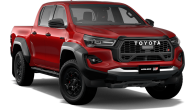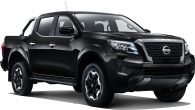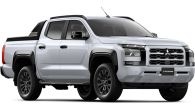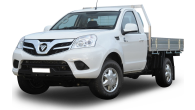Are you planning on buying a ute for your family? Maybe you’ve got double use for it, like you need it for work to transport things around and you’re wondering how good of a family car it can make.
We’ve got two utes here, the Mazda BT-50 and the Isuzu D-Max, and I’m going to talk you through which is the best buy for a family.
I've already tested both of these utes separately, and we’ve put them together here to give you a really good idea of how they compare, and what they're like to live with.
The Mazda is the middle of the range BT-50 XTR which costs around 57 grand, before on-road costs. This Isuzu is the top of the range X-Terrain and costs just under $60 grand drive-away. So, similar pricing, but what do you get for your moolah?
Let’s get into it.
How do they look?
Utes are large, tough looking beasts. Will you find one you like the look of more than the other? Here’s how the BT-50 and D-Max compare, D-Max first.
The D-Max looks like a proper, rough ute. And look, aesthetically while it doesn’t appeal to me, it did give me the confidence that nobody would mess with me while I was driving it.
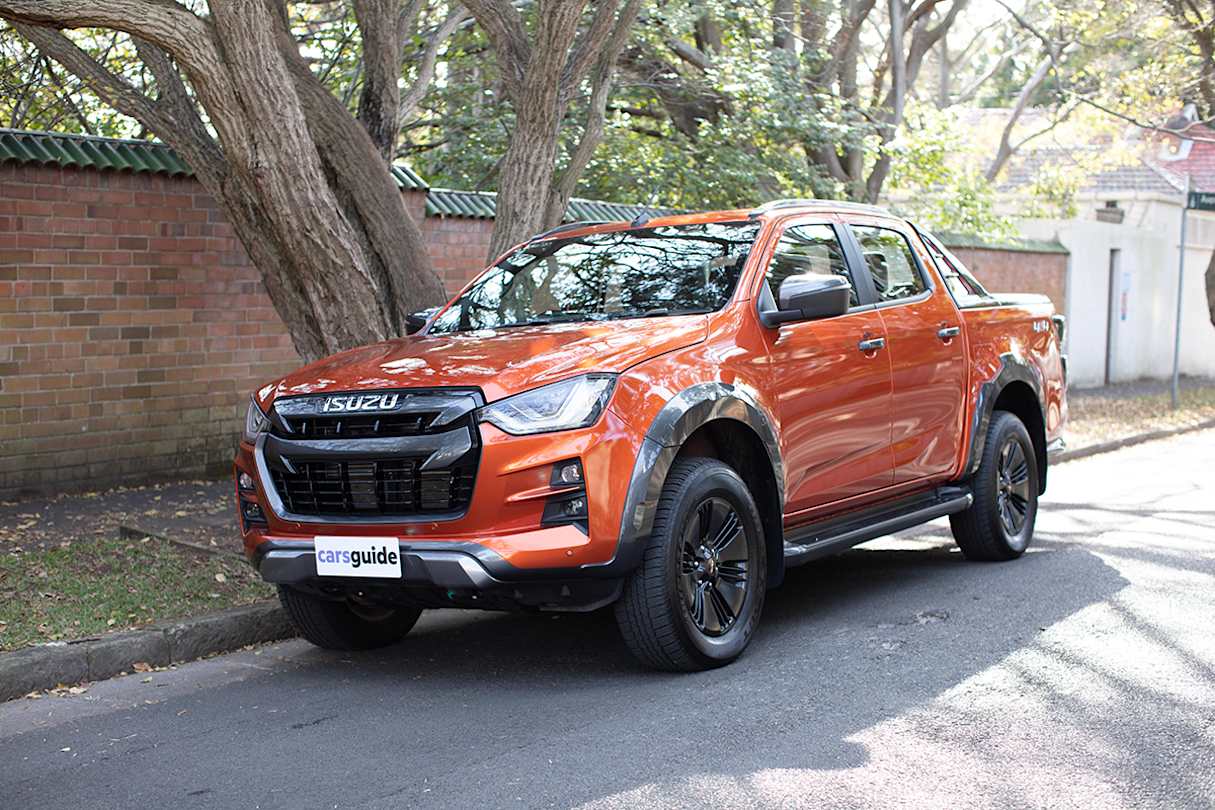
It gives you the impression it could take you on outside the pub if it needed to! And take you across a river! Or up a gravelly hillside. That’s the vibe I’m getting here.
The inside is decent enough, there are leather accented seats and a leather steering wheel. It’s not by any means luxe but it looks easy to clean when you climb back in after a muddy camping trip, which you’ll no doubt take in this car.
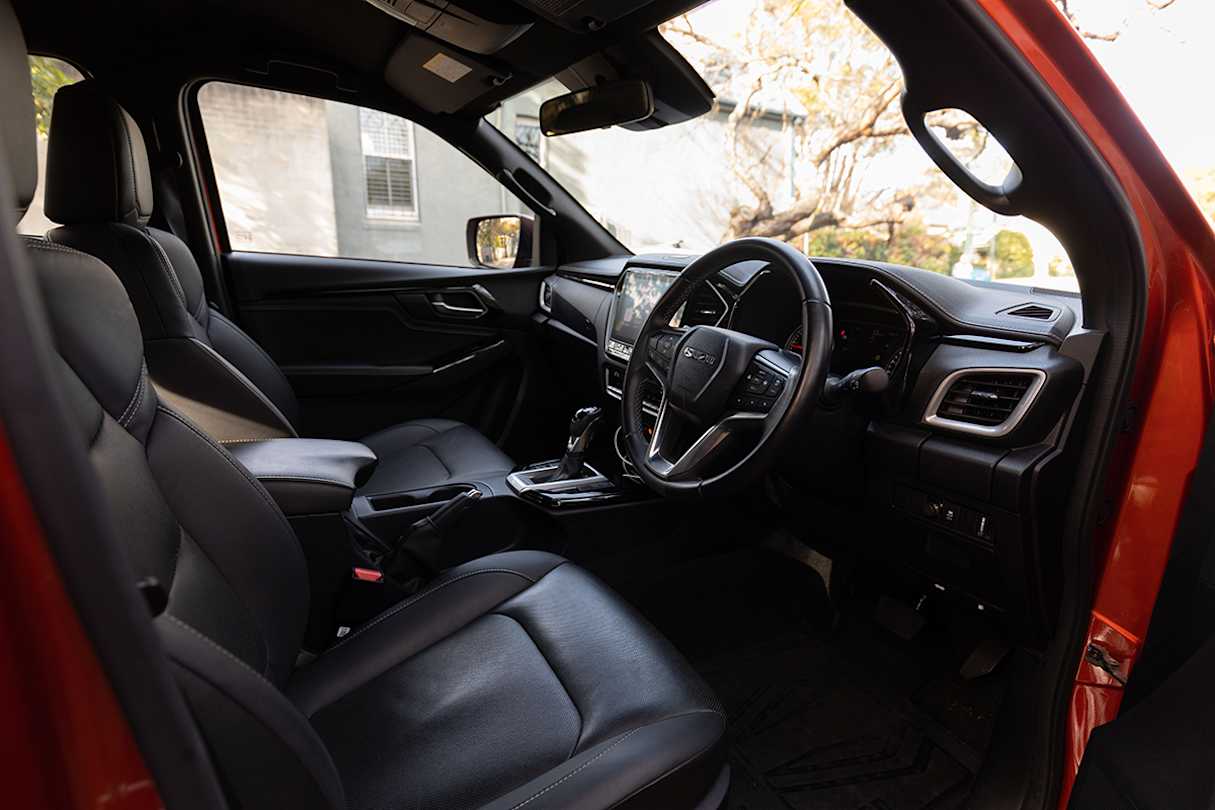
It does have some metallic accents throughout the cabin and some high gloss points throughout.
In the Mazda, I got the most comments from women: “How’s your truck going?”, “What are you driving?”, “How is it to drive?”
So, there was a tiny bit of interest but mostly it was, “what are you doing in a ute?” And that’s probably thanks to the fact my husband is not a tradie, and also that the car looks like small truck.
But the Mazda BT-50 doesn’t look as truck-like as other utes. There's the familiar Mazda grille and overall it looks more sophisticated and stylish than the D-Max.
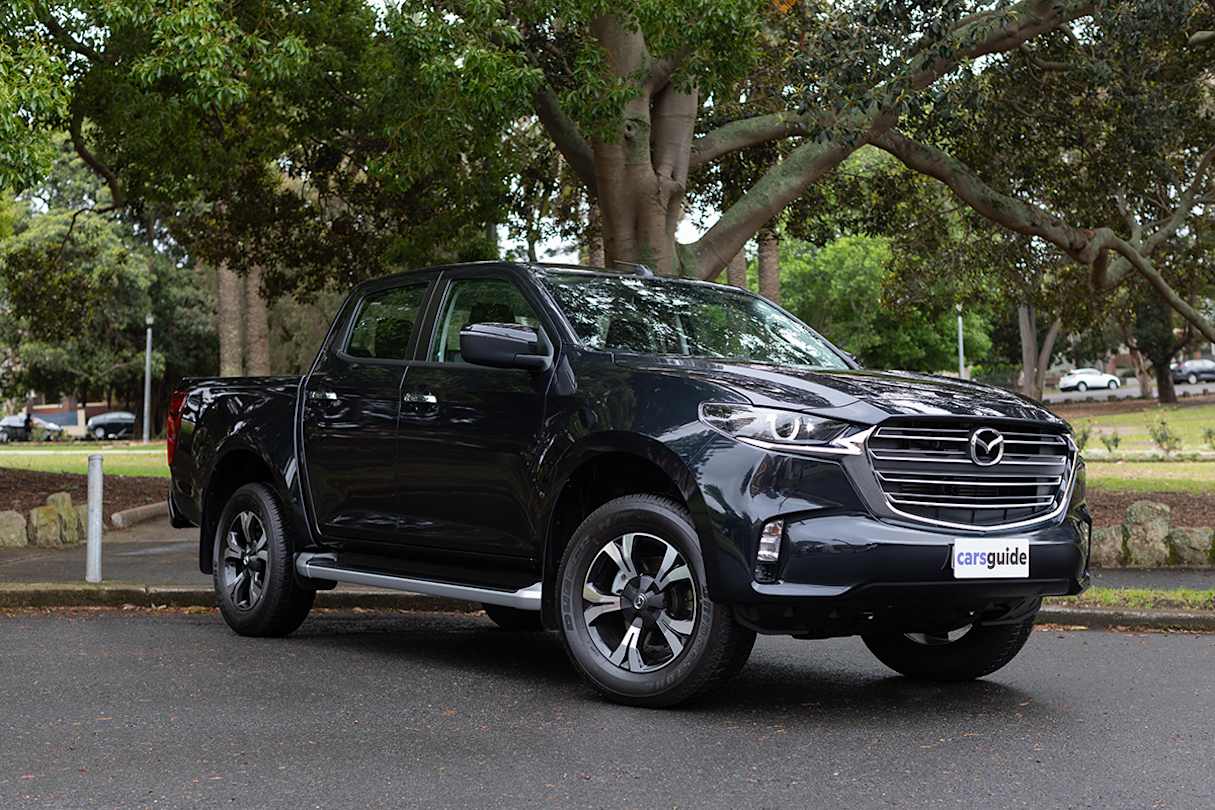
I was in the middle of the range BT-50 XTR, and while there aren't as many fancy interior features as the top-of-the-range GT, it still looks good - especially for a ute.
The GT is a few grand more and adds brown leather seats and front seat heating.
There are fabric seats that feel fine and a leather steering wheel. The dash in front of the steering wheel looks a bit dated and the multimedia screen feels like that, too.
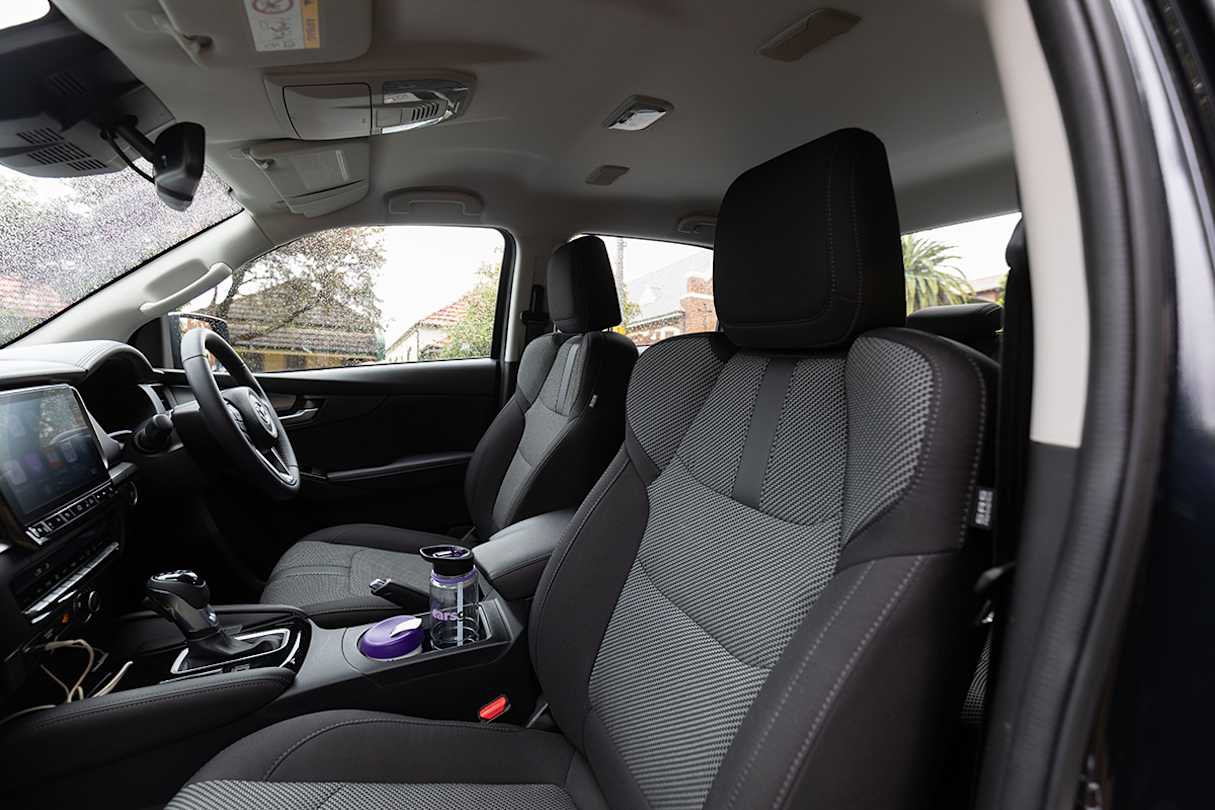
But compared with some other utes this is quite classy. It’s not as flash as an SUV, but it does win on design compared with the D-Max.
So, as far as design goes, the BT-50 has a more stylish exterior and interior. The D-Max is more expensive and is the top-of-the-range, which is why you’ll get leather seats in there. To get the same in the BT-50 you need to spend more on the top model.
What’s the tech like?
In the D-Max you’ll get a 9.0-inch multimedia display with sat-nav, corded Android Auto and wireless Apple CarPlay which is pretty great for this category and an eight-speaker sound system. It’s not an amazing system but it is good.
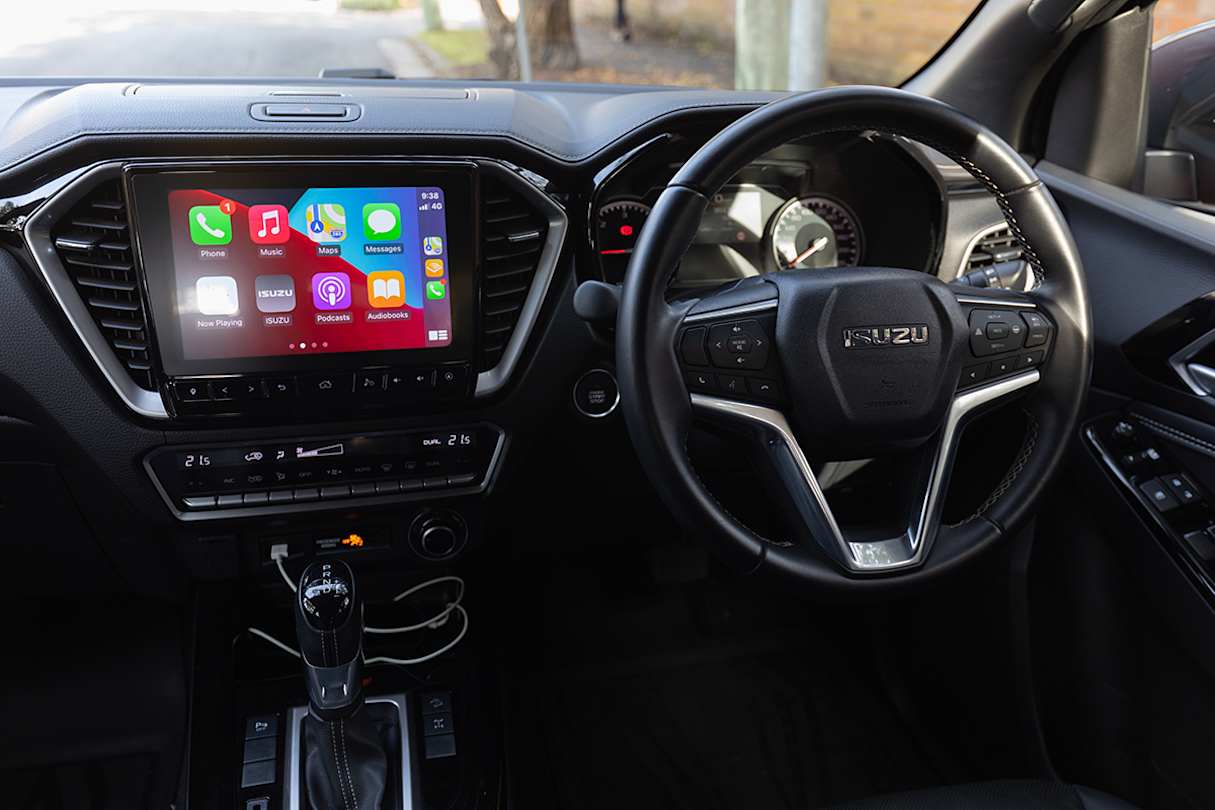
Climb into the BT-50 and you’ll find a similar set up, with a 9.0-inch multimedia screen that has Apple CarPlay and Android Auto.
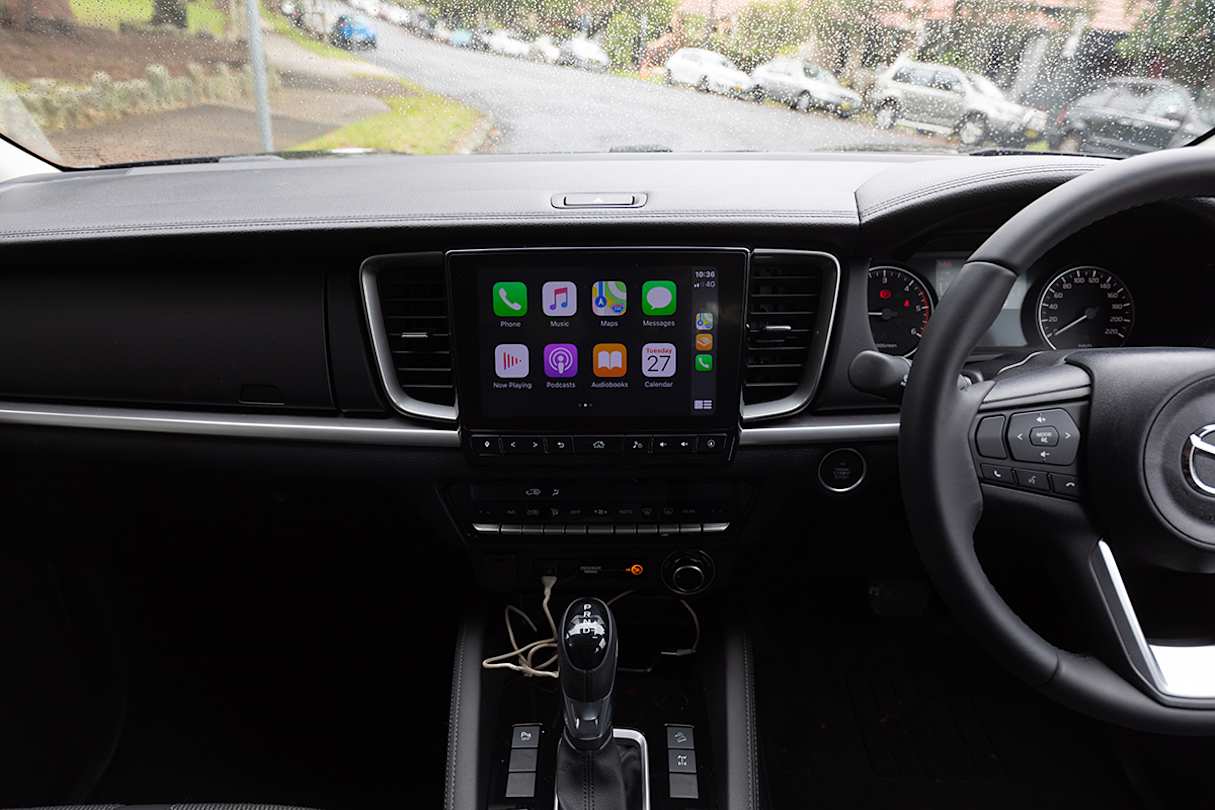
Yes, even in your ute, you want to have the easiest way of listening to music and syncing your phone so you can navigate. It’s got wireless CarPlay connection, too, and it’s great to have that kind of technology in a ute.
It’s an even race in the technology stakes.
How spacious are they?
These two utes may look different but they’re actually exactly the same car same under the skin - yes, seriously the same - and that means they have exactly the same amount of interior space.
So, when you get into the D-Max and have an enjoyably large cabin, it’s the same thing in the BT-50. Huge.
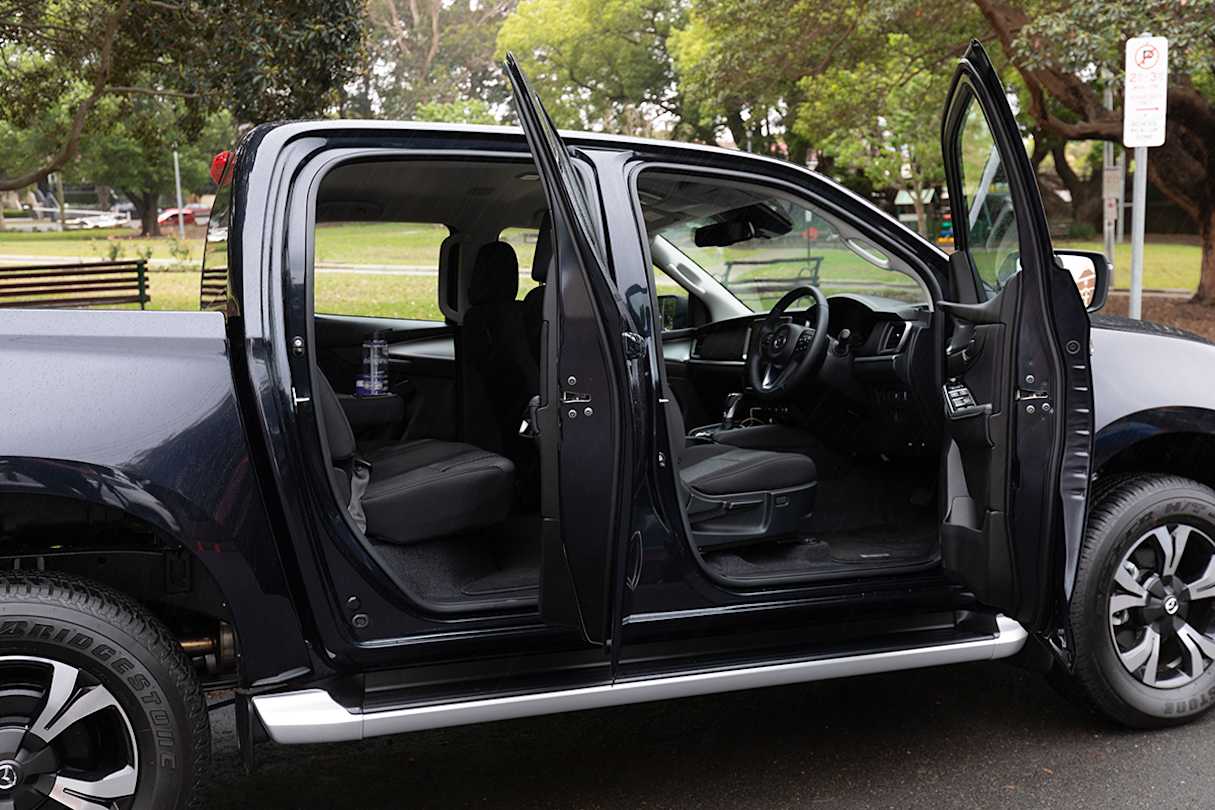
They’re both high off the ground and feel positively airy with loads of leg and headroom in the front even, for taller passengers. They are big people’s cars.
Rear passengers also have a good amount of space and my kids happily used the side step to climb up and in.
They also have plenty of room in the back seat, I can fit comfortably at 161cm (5'3") and taller adults/teenagers won’t struggle with legroom or headroom in either car.
While you can fit three kids car seats across, neither car has three top tether points. There are only two top tethers so you can only put two children’s car seats in.
So, if you have three kids, make sure one is out of a car seat before buying either of these utes.
Now, instead of a boot, you get a giant tray, which is great for deliveries, when you’ve got loads of boxes you want to transport around. And of course for tradies who have to carry tools for their job.
For a mum doing the school run who doesn’t have a business that needs a lot of delivery space, it’s not as convenient as a regular boot.
Space wise it is huge and that’s the advantage of having a ute.
The D-Max has the hard cover on the back tray, which doesn’t come standard with the Mazda.
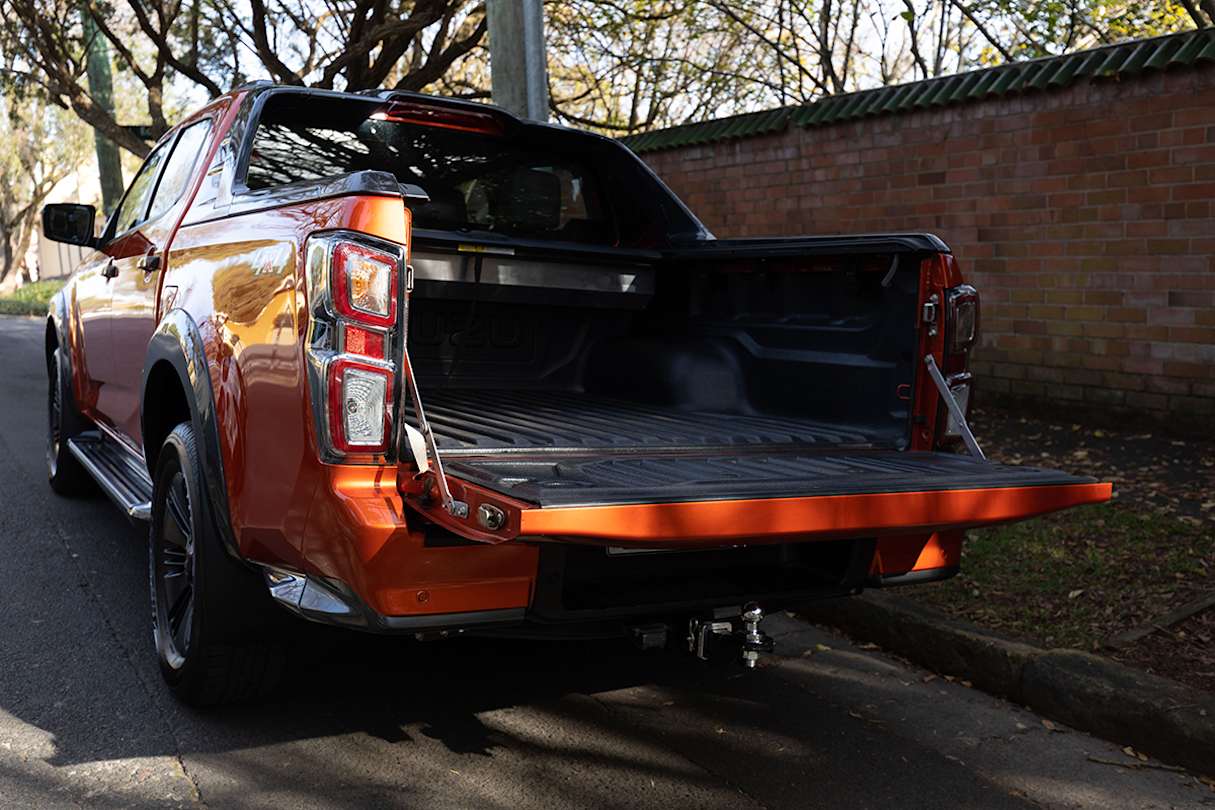
But the Mazda has a bunch of accessories options, like a hard or soft cover for the tray (from $3115) and you can even get a whole canopy on top starting at around four grand.
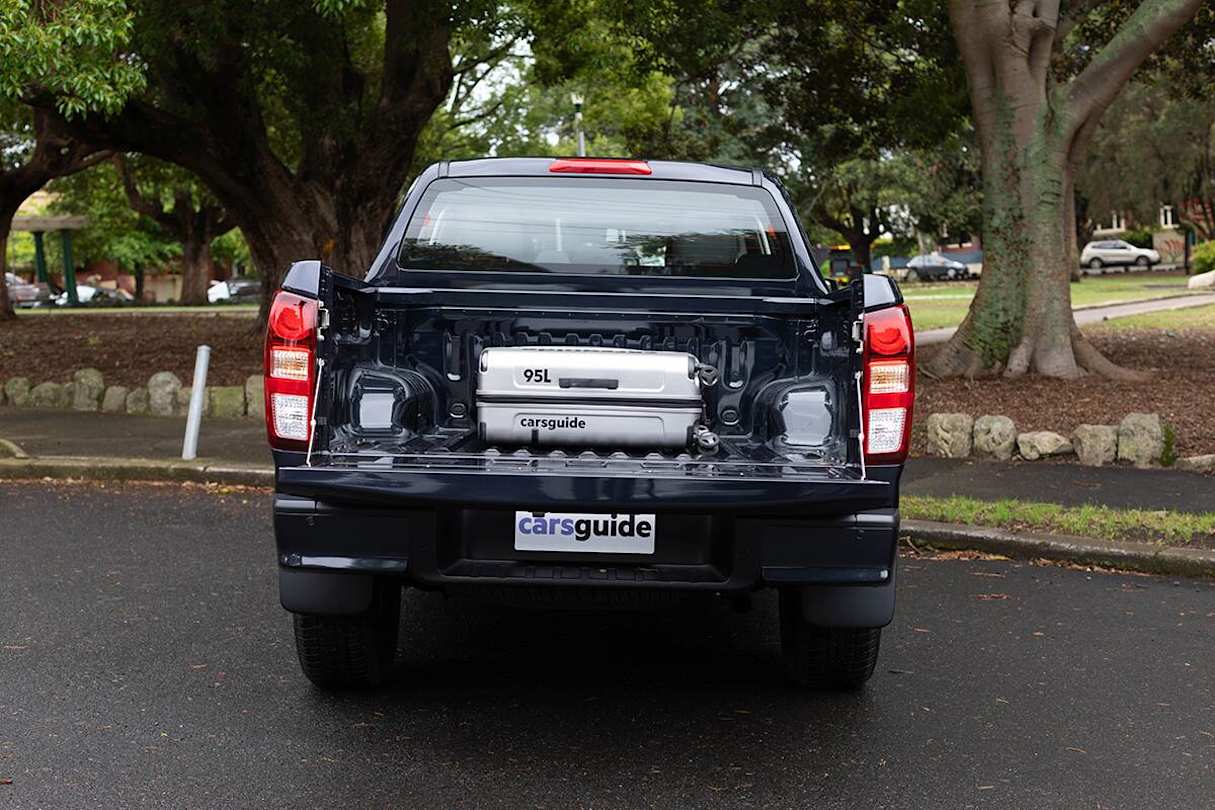
Plus, there are bunch of different finishes on the tray and you can opt in a rubber tray mat too.
How easy are they to use every day?
For storage in the D-Max cabin there are two cupholders in the front, a spot for keys and a phone but it’s very slippery in the storage spot, there are bottle holders in each door and a centre storage bin.
Opening the tray of the ute on the D-Max is easy enough, it’s got a lockable cover that easily slides over.
Pulling the cover back isn’t as easy, and also loading the tray - you may have to get in depending on how tall you are.
As mentioned, the Mazda comes with optionable covers, so choose your look.
In the BT-50 there are two cupholders in the front that are very deep and not exactly practical for those who don’t like a giant Starbucks.
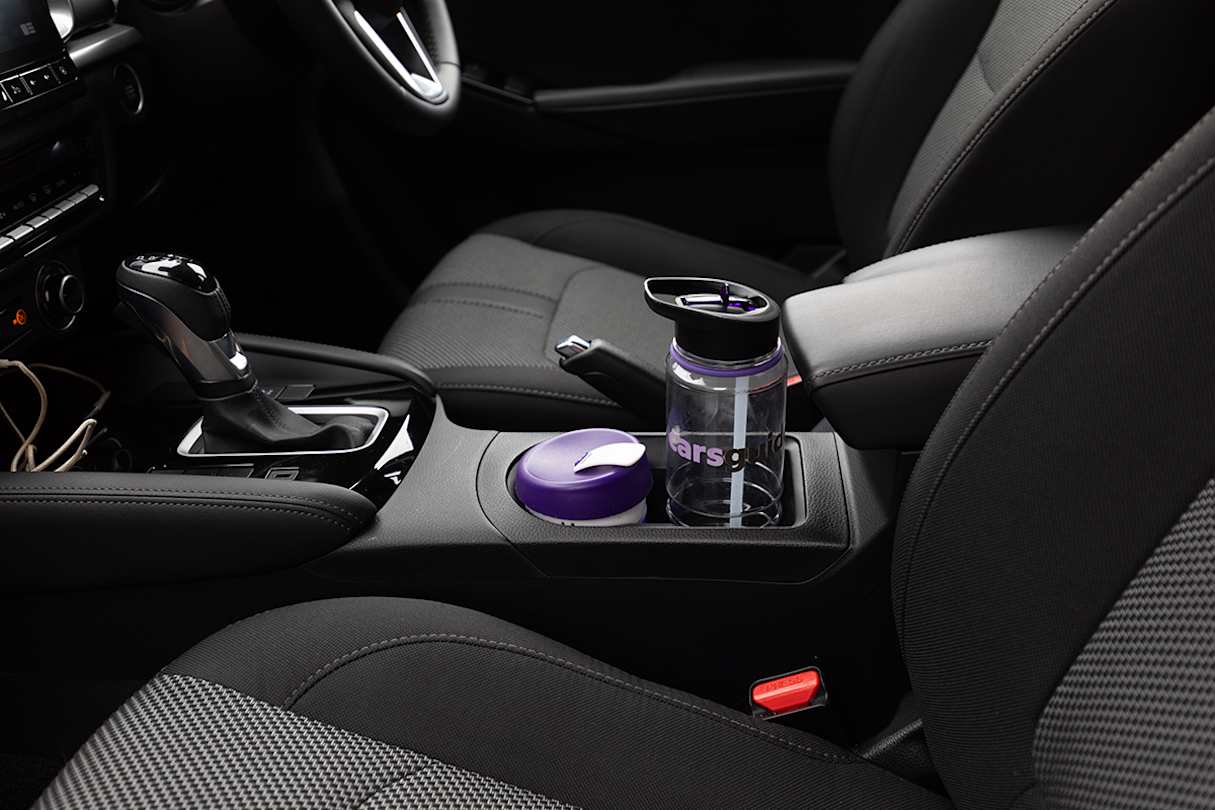
I have a tiny coffee and I couldn’t put it in there for fear of losing it. There’s a spot for keys and a phone and a large centre storage bin plus bottle holders in the doors
In both cars, while the back tray is enormous, things like school bags and grocery bags will slide around as it’s so large.
You’ll need to get some straps to tie them down or a cargo net to hold them in place. Annoying for everyday?
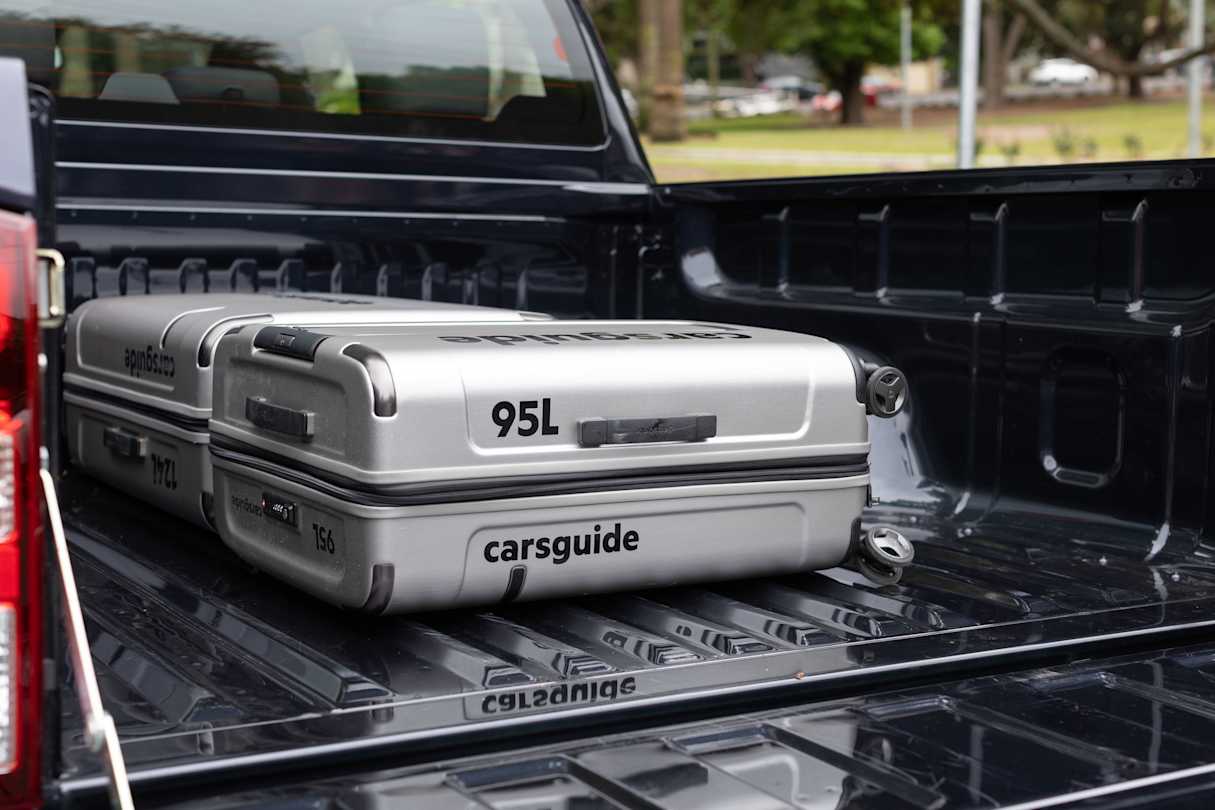
If you’re a parent, without an actual need for a tradie ute, then yes, it will be annoying. Basically it’s a bit of extra work every time you pop something in the boot because you need to strap it down.
Does the space make up for it? Well that’s up to you and your lifestyle and how often you need a giant tray space.
If you use it all the time then it’s worth it. If you don’t, then it’s not. Personally, it’s not enough of a plus for me to want to drive a ute full-time.
How do they drive?
Well, here’s the thing. Because the D-Max and BT-50 have the same engine, suspension, and anything mechanical really, they drive exactly the same!
How does it feel to drive a ute on the school run?
The most surprising thing I found is that I actually enjoyed driving them. I love being so high up off the road, I love having all the power of a 3.0L engine, and sure, it sounds like a loud diesel, but it’s a ute, you’ve got to expect that.
Then there’s the quiet confidence that comes with having a proper 4WD. The turning circle isn’t even as huge as I thought it was going to be.
It’s not awkward to turn and the steering wheel is light and easy, so parking wasn’t as much of an issue as I expected, and I squeezed into spaces I didn’t think these cars were capable of using. There’s also a decent reverse parking camera.
The official combined fuel figure is 8.0L/100km and that’s diesel. There is no electric or hybrid version on offer. We averaged 10.4L/100km.
So clearly, the BT-50 and D-Max score the same in the driving section. It’s a very tight race we have here folks.
How safe are they?
Once again they are exactly on par with safety features, and here’s what that looks like.
There is auto emergency braking with pedestrian and cyclist detection, lane departure warning system, blind-spot monitoring, rear cross-traffic alert and adaptive cruise control.
You’ll get airbags to cover driver and front passenger and side curtain airbags that go across both rows. plus it has a front centre airbag and both get a maximum five star ANCAP rating under the strict 2020 criteria.
And neither car has a third top tether point so they can both only fit two kids in car seats. We have another tie on our hands!
How much do they cost to own?
Now if you’re wondering about warranty, here’s where the two differ.
In the Isuzu D-Max you’ll get a six year/150,000km warranty with 13 months roadside assistance. And if you service your D-Max with a participating Isuzu Ute dealer, the roadside cover will be extended up to a maximum of seven years.
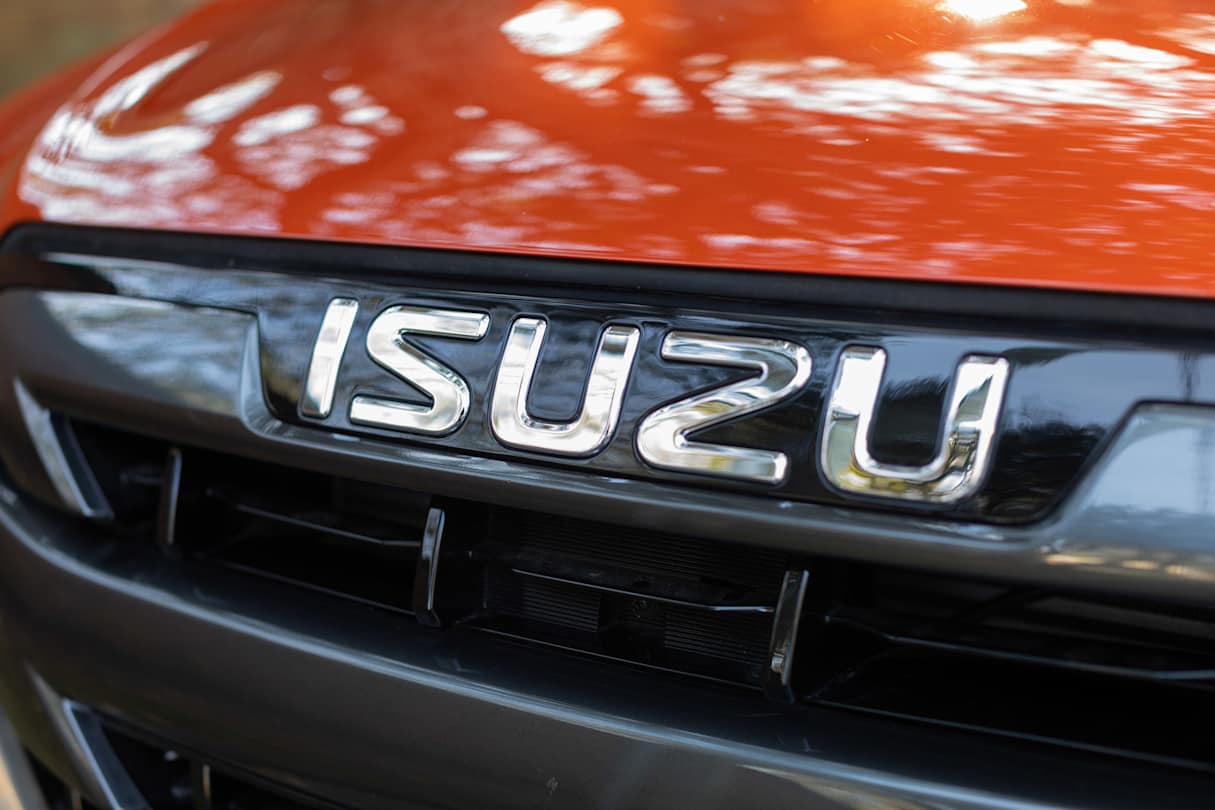
Servicing is required every 12 months or 15,000 km, and seven-year capped servicing is offered, so services will cost just over $480 each year for that period.
In the BT-50, Mazda offers a five-year/unlimited kilometre warranty and gives you five years of roadside assistance.
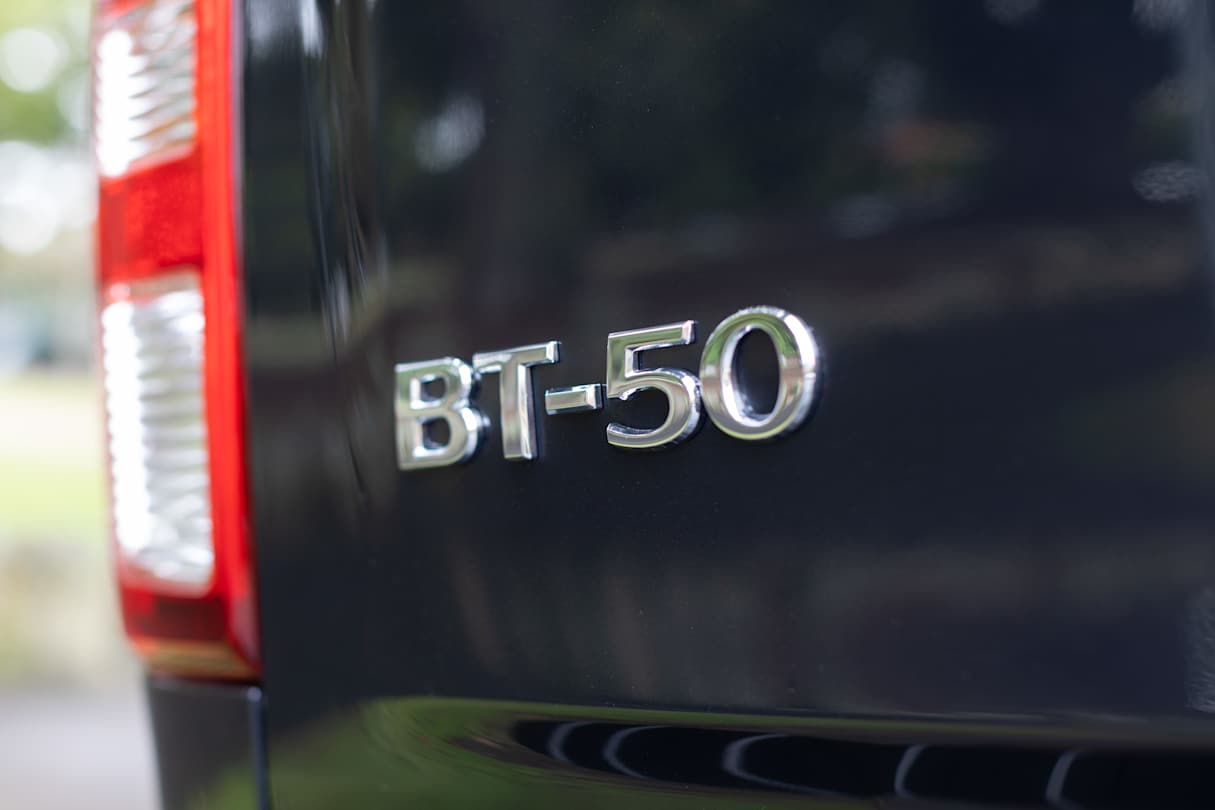
Services are required every 12 months or 15,000km and there is a capped servicing plan that averages out over the five years to be approximately $496 per service.
Unless you cover really big kilometres, Isuzu wins this round... just.
Verdict
It’s crunch time. Who comes out on top?
While they are the same car under the skin, they do differ in terms of design and interiors, with the Mazda trumping Isuzu on style points (typical Mazda), especially if you’re looking at this for a family car.
And yes, the D-Max comes with a hard tray cover that’s pretty much necessary for everyday driving. But, you can option one on the Mazda, as well.
Being so similar, it comes down to how driving the car makes you FEEL, and I felt better driving the BT-50 around. It looks better, less like a tradie’s ute, and for a family, I’m calling it the winner today.
| Score | ||
| BT-50 | 3.8/5 | |
| D-Max | 3.6/5 | |















